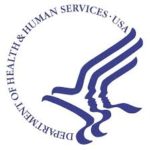The following is the latest health policy news from the federal government for October 6-12. Some of the language used below is taken directly from government documents.
No Surprises Act
CMS has reopened the federal independent dispute resolution (IDR) portal for the initiation ofnew single disputes, including single disputes involving bundled payment arrangements, but parties still cannot initiate new disputes involving air ambulance services and batched disputes for air ambulance and non-air ambulance items and services. IDR portal functionalities related to previously initiated batched disputes also are unavailable. Learn more about this action from this CMS announcement, which includes an FAQ. Previously, CMS had directed certified IDR entities to resume processing all single disputes submitted on or before August 3, 2023. Processing and initiation of batched disputes and initiation of air ambulance disputes remain temporarily suspended pending additional guidance and system updates.
 Centers for Medicare & Medicaid Services
Centers for Medicare & Medicaid Services
- With the FDA’s approval of an updated Novavax COVID-19 vaccine for patients 12 and older, CMS has published a bulletin with information about payments, new billing codes, and older billing codes that are no longer valid. Find the bulletin here.
- CMS has posted a bulletin for providers describing what they need to do to see expanded Fiscal Intermediary Shared System direct data entry screens. The monetary amount fields for claims billing and payment now allow up to 10 digits. Find the bulletin here.
- CMS has updated Medicare codes for selected preventive services. Find updated information here.
- CMS has posted notices detailing quality measures that will be removed from the quality reporting programs for post-acute-care providers as of January 2024. Learn more from notices addressing quality measure removal for long-term care hospitals (LTCHs), inpatient rehabilitation facilities (IRFs), and skilled nursing facilities (SNFs).
- CMS has posted a document that lists the 2023 criteria used to audit and validate data submitted for the Merit-based Incentive Payment System (MIPS) performance categories. To view the document go here, scroll down to “Full Resource Library,” and click on “2023 MIPS Data Validation Criteria” for a direct download of the zip file.
 Department of Health and Human Services
Department of Health and Human Services
- Medicare could save millions of dollars if it expanded its hospital transfer payment policy for discharges to post-acute care to all MS-DRGs, the HHS Office of the Inspector General (OIG) has concluded after a recent audit. In its analysis the OIG reviewed a stratified random sample of 100 acute-care inpatient hospital claims for Medicare enrollees who were discharged early to post-acute care from 2017 through 2019. These claims were billed with specified MS-DRGs that are not subject to the hospital transfer policy for discharges to post-acute care. The OIG calculated the savings Medicare would have realized if it extended its hospital transfer payment policy for discharges to post-acute care to all MS-DRGs. In addition, it compared the payments that would have been made under an expanded transfer policy with the hospitals’ calculated costs to provide care. Learn more from this OIG report and this summary of that report.
- The Provider Relief Fund reporting portal for reporting period 5 closed on September 30. Providers that reported unused funds must return those funds by October 30. Learn more here.
- HHS’s Health Sector Cybersecurity Coordination Center has issued an alert urging organizations in the health care sector that use Cisco’s emergency responder communications platform to implement an update that fixes a vulnerability on that platform. Learn more about the problem, the threat it poses, and how to address it from this Health Center Cybersecurity Coordination Center health sector alert.
HHS Newsletters
- CMS – MLN Connects – October 12
- AHRQ News Now – October 10
- HRSA eNews – October 5
- CMS Fall Burden Reduction Newsletter
- CMS – Medicare Provider Compliance Newsletter
 Drug Enforcement Administration (DEA)
Drug Enforcement Administration (DEA)
The DEA has extended the authority of qualified health care providers to prescribe controlled substances via telehealth through the end of 2024. This authorization was created as a temporary measure in response to the COVID-19 public health emergency and this is its second extension since the end of the formal public health emergency. The DEA has indicated that it intends to promulgate new standards by the fall of 2024. Without the extension, the authority would have expired on November 11. Learn more from this Federal Register notice.
Food and Drug Administration
The FDA announced the creation of a new Digital Health Advisory Committee to help the agency explore the complex scientific and technical issues surrounding digital health technologies such as artificial intelligence/machine learning, augmented reality, virtual reality, digital therapeutics, wearables, remote patient monitoring, and software. The Digital Health Advisory Committee will advise the FDA on issues involving digital health technology, providing relevant expertise and perspective to help improve the agency’s understanding of the benefits, risks, and clinical outcomes associated with use of digital health technology. Learn more about the committee from the following resources.
- An FDA news release.
- An FDA overview of the committee and its purpose.
- A Federal Register notice that describes the committee in greater detail.
- Another Federal Register notice seeking nominations of individuals and health organizations for the committee and outlining the process for submitting such nominations. The deadline for submitting nominations is November 13.
- Another Federal Register notice seeking nominations of individuals and consumer organizations for the committee and outlining the process for submitting such nominations. The deadline for submitting these nominations is November 27.
- Another Federal Register notice seeking nominations for voting members, excluding consumer and industry representatives, for the committee and outlining the process for submitting such nominations. The deadline for submitting these nominations is December 11.
Medicaid Payment Advisory Commission (MedPAC)
MedPAC has posted information about its October 5 public meeting. On the meeting agenda were the following issues:
- considering current legal updates to Medicare’s payment rates for clinician services
- examining staffing ratios and turnover rates in nursing facilities
- an alternative method to establish Medicare payments for selected conditions treated in inpatient rehabilitation facilities
- workplan: prices of generic drugs under Part D
Go here for an overview of each issue and links to the presentations made by MedPAC staff during the discussions.
 Medicaid and CHIP Payment and Access Commission
Medicaid and CHIP Payment and Access Commission
MACPAC has published a review and sample size analysis of 13 federal population health surveys. The review identified which surveys included questions about disability, primary language, limited English proficiency, and sexual orientation and gender identity. The sample size analysis identified which surveys included a sufficient sample size to support analysis for Medicaid-covered individuals in each of these demographic groups. The findings show that the majority of surveys include questions to identify individuals with a functional disability but fewer than half of these surveys include questions about intellectual disability, serious mental illness, primary language, limited English proficiency, and sexual orientation and gender identity. Of the surveys that do include these questions, the majority have a sufficient sample for reporting about Medicaid-covered individuals for each of these demographic groups. Learn more from the MACPAC report “Federal Survey Sample Size Analysis: Disability, Language, and Sexual Orientation and Gender Identity.”
Government Accountability Office (GAO)
The GAO has published a report describing how state and local governments have spent the billions of dollars the federal government has awarded to them to help them cover COVID-19 recovery costs. Find the report here and a summary of the report here.
 Stakeholder Events
Stakeholder Events
CMS – National Stakeholder Call – October 17
CMS administrator Chiquita Brooks-LaSure and her leadership team will provide an update on the agency’s recent accomplishments and how they are working to advance the agency’s strategic plan during a national stakeholder call on Wednesday, October 17 at 1:00 (eastern). Go here to register to attend the virtual event.
CMS – Making Care Primary (MCP) Office Hours – October 24
The CMS Innovation Center’s Making Care Primary (MCP) Model team will answer questions about the forthcoming model in an Office Hours webinar on Tuesday, October 24 at 2:00 (eastern). A link to register for the event will be sent via listserv once available. In addition to the live Q&A, participants will be able to submit questions in advance upon registering. Go here to learn more about the model and applying to participate in it.
CMS – Medicaid and CHIP – October 25 and December 6
HHS and CMS are holding a series of monthly webinars on Medicaid and CHIP renewals to educate partners. Topic covered vary each month. Go here to register for upcoming webinars.
- October 25 at 12:00 pm (eastern)
- December 6 at 12:00 pm (eastern)
Recordings, transcripts, and slides from past webinars can be found on the CMS National Stakeholders Calls web page.
CMS – Patient-Focused Listening Sessions on Medicare Drug Price Negotiations – October 30 – November 15
CMS will host a series of patient-focused listening sessions this fall as part of the Medicare Drug Price Negotiation Program. The virtual public listening sessions will provide an opportunity for patients, beneficiaries, caregivers, consumer and patient organizations, and other interested parties to share input relevant to drugs selected for the first round of negotiations. Learn more about the listening sessions, the schedule for these sessions, the individual drugs to be discussed at each, and how to participate from the CMS drug listening session web page.
MedPAC – Public Meetings – November 2 and 3
The Medicare Payment Advisory Commission (MedPAC) will hold its next public meeting on Thursday, November 2 and Friday, November 3. An agenda and information about how to join the meeting are not yet available but when they are they will be posted here.
MACPAC – Public Meetings – November 2 and 3
The Medicaid and CHIP Payment and Access Commission (MACPAC) will hold its next public meeting on Thursday, November 2 and Friday, November 3. An agenda and information about how to join the meeting are not yet available but when they are they will be posted here.
CMS – Burden Reduction Conference – November 15
CMS will convene leadership from the federal government, health provider organizations, and the patient advocacy community to focus on opportunities across the health care enterprise to reduce administrative burden, strengthen access to quality care, and make it easier for clinicians to provide that care during a day-long virtual conference it will hold on Wednesday, November 15 beginning at 9:00 (eastern). Go here to learn more about the conference and find a link for registration.
CMS – Town Hall Meeting on FY 2025 Applications for New Medical Services and Technologies Add-On Payments – December 13-14
CMS will hold a virtual town hall meeting on Wednesday, December 13 and Thursday, December 14 during which organizations representing hospitals, physicians, manufacturers, and other interested parties may present comments, recommendations, and data to CMS’s clinical staff about whether individual services or technologies represents a substantial clinical improvement. The meeting will include a discussion of the substantial clinical improvement criteria for the FY 2025 applications for new technology add-on payments. Learn more about the meeting, why it is being held, what it will address, and how to participate from this CMS notice.

 Centers for Medicare & Medicaid Services
Centers for Medicare & Medicaid Services Medicaid and CHIP Payment and Access Commission
Medicaid and CHIP Payment and Access Commission Stakeholder Events
Stakeholder Events